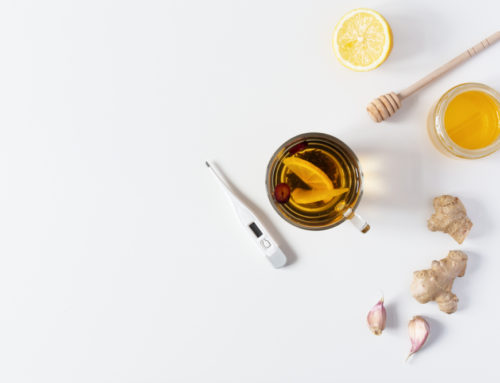By Dr. Kathleen Regan, ND
Glowing skin is often interpreted as a sign of “well-being” and “health” in humans. Many anti-aging strategies target our desires to appear young and healthy. Aging is a complex process with different organs aging at different rates. Yet, it is the skin that shows the first obvious marks of passing time.
Aging skin is a normal process and ‘successul aging’ should focus on healthy and active participation in life. Preventative dermatology looks at delaying aging through a combination of methods. The goal is to achieve healthy, smooth, blemish-free, translucent and resilient skin OR to get the skin “looking better” but not younger per say. This is the realistic goal of anti-aging techniques that people need to understand. The following seven steps will help you to achieve your best skin and delay age-related changes.
- Choose a daily skin routine that will help strengthen your skin barrier against dehydration and penetration by microorganisms, allergens, irritants, inflammatory agents or radiation. This will protect all layers of the skin and prevent wrinkling. Your daily routine should include a face wash, toner, moisturizer and serum. Natural products with antioxidants can add additional protection. At Innate Wellness we offer Naturopathic Skin Consultations with Dr. Angelina Riopel to address skin health from the inside out as well as Holistic Facial Consultations with Seanna Cohen to help you pick the right routine for your skin.
- Being mindful of sunlight exposure and light protection is an excellent way to keep skin healthier, longer. DNA damage from light and UV generated reactive oxygen species (ROS) are the main causes of wrinkling and photo damage. Sun avoidance, sunscreens, topical retinoids and topical or oral antioxidants are the best ways to protect the skin from sunlight.
- Oral antioxidants have been shown to delay skin aging and improve skin conditions. Antioxidants neutralize free radicals and other elements that damage cell membranes. We have internal antioxidant defenses but nutritional antioxidants are the most important sources. For example, Vitamin C and E in combination are known to act both as a sunscreen and an anti-oxidant both when applied topicaly or taken orally. It is an interesting fact that Vitamin E on its own seems better suited to protect the skin when applied topically then when taken orally. Other oral supplements that have shown amazing benefits for the skin through antioxidant activity include coQ enzyme, alpha lipoic acid, lycopene, resveratrol and astaxanthin to name a few.
- Look for skin care that includes topical antioxidants such as vitamin C, B and E. These vitamins are readily able to penetrate the skin.
- Vitamin C (5-15% concentration) has been shown to induce collagen formation. This effect is stronger when it is taken in combination with Vitamin E.
- Vitamin E (2-20% concentration) is anti-inflammatory and acts to smooth the skin, maintain moisture in the skin, accelerate skin metabolism and protect skin from the sun. Vitamin E is available in two forms, alpha-tocopherol (alcohol-based) and alpha-tocopherol acetate. Alpha-tocopherol acetate does not penetrate the skin as easily, so make sure you’re reading the labels.
- Vitamin B3 (5% concentration) helps promote cell metabolism and regeneration with some studies showing an increase in skin elasticity.
- Topical application of green tea polyphenols before UV exposure can reduce DNA damage of the skin. Other botanicals can also act in this way including some of the antioxidants mentioned above.
- Be cautious with products that contain Vitamin A, natural or synthetic. Vitamin A, listed on products as retinol (natural), retinaldehyde (synthetic) and tretinoin (synthetic) have been shown to have an antioxidant effect and can induce collagen synthesis. Tretinoin is one of the main ingredients in sunscreens, facial creams and lip balms with SPF as well as anti-aging products. It has been shown to reduce UV aging such as wrinkles, loss of skin elasticity and pigmentation. Vitamin A applications are also used to reduce acne and heal scarring. This all sounds good right? The problem is, there is a significant amount of research indicating that Vitamin A dramatically increases the development of skin tumors when used in the sun. Vitamin A used topically should be restricted to the evening. In addition, Vitamin A, as a fat-soluble vitamin is toxic in high doses. It has been linked to a variety of health problems, including liver damage, brittle nails, hair loss, osteoporosis and hip fractures in older adults. Excessive vitamin A intake can cause skeletal abnormalities in a developing fetus. Therefore, children, pregnant or breast-feeding women or women with osteoporosis risk should avoid these creams all together. Yet, many are unaware of the content in their cosmetic products. For more information read here: http://www.ewg.org/2015sunscreen/report/the-problem-with-vitamin-a/
- Consider a gentle, natural glycolic acid facial peel. Glycolic peels induce even and tighter skin as a result of irritation and regeneration of the skin. Natural glycolic acid helps to exfoliate the most superficial, epidermal layers of the skin without going deeper. It helps to break down substances holding onto dead skin, dissolves build up in the pores, prevents breakouts and leaves the skin brighter, smoother and firmer. It is similar to ‘Superficial Chemical Peels’ with alpha hydroxyl acids, which must be carried out by a professional esthetician. The chemical alpha hydroxyl acids contain 50% glycolic acid that can burn and cause pigmentation changes whereas, natural glycolic peels contain a safer amount of 5% glycolic acid and are typically derived from natural substances such as sugar cane. Natural glycolic peels can be done daily if necessary or weekly without any of the harsher side effects beyond some redness and peeling skin. We recommend the Detoxifying Glycolic Gel by Intelligent Nutrients or the Resurfacing Mask by Tata Harper. These products both contain glycolic gel as well as a range of other herbs known for their cosmetic actions.
- Have your hormones assessed. Regardless of age, if you are experiencing fatigue, mood changes, hair loss, unusual weight gain, bone density changes, libido changes or menstrual changes it will also help to have your hormones assessed. Hormonal changes can dramatically impact the body and accelerate aging. There are many natural treatments including supplements and botanicals that can help to balance hormones naturally.
Resources
Fusco, D., Colloca, G., Monaco, M. R. L., & Cesari, M. (2007). Effects of antioxidant supplementation on the aging process. Clinical Interventions in Aging, 2(3), 377–387.
Ganceviciene, R., Liakou, A. I., Theodoridis, A., Makrantonaki, E., & Zouboulis, C. C. (2012). Skin anti-aging strategies. Dermato-Endocrinology, 4(3), 308–319. http://doi.org/10.4161/derm.22804





